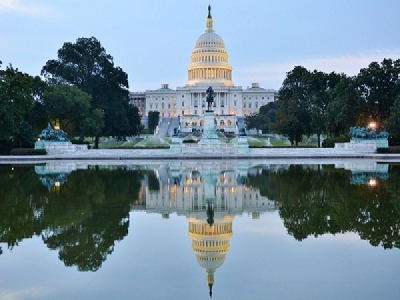
Posted on August 8, 2016
By Reynolds Hutchins, JOC.com
Time is running out for U.S. port projects in need of federal dollars, after Congress adjourned for its summer recess this year without authorizing any new money under a Water Resources Development Act.
The clock is also ticking for port authorities hoping to see a provision make it into the final WRDA legislation that would take the Harbor Maintenance Tax, a 0.125 percent levy on imported goods aimed at funding port and harbor maintenance, off budget. It’s a controversial and historic move, and one that, if adopted in the final legislation, would stop non-port-related bodies from siphoning money from the trust fund and send millions more to the country’s maritime gateways for dredging and jetty maintenance.
If Congress does not act on WRDA in this current session, that provision and those projects will have to find their way into other bills or wait until next year.
Lawmakers in the House and Senate have requested floor time to debate rival WRDA bills as soon as they return in September. But, with an abbreviated legislative calendar thanks to the upcoming November election and a full slate of bills to work through, they’ll be in a mad dash to get anything, much less a WRDA bill, passed.
“This year you have particularly a different situation,” Paul Bea, a maritime consultant at PHB Public Affairs in Washington told JOC.com Wednesday. “You have a Congress that is not getting a whole lot done.”
It’s an election year and, on top of that, legislation relating to the Zika virus threat and the opioid epidemic and the debate over gun violence that have stirred media hype and grabbed the public’s attention have taken precedence.
Even the inclusion of a drinking water provision included in the Senate version of the bill, and tied to the Flint drinking water contamination scandal, didn’t muster enough momentum for the upper chamber’s bill to make it to a vote.
In late June, one of the bill’s sponsors Sen. Jim Inhofe, R-Okla., and 29 other Republicans sent a letter to Sen. Mitch McConnell, R-Ky., pressing the Senate Majority Leader to bring that WRDA bill up for a vote before the summer recess. McConnell never did.
Inhofe called the attempt “wishful thinking,” but the bill’s other sponsor Sen. Barbara Boxer, D-Calif., said she was still optimistic. Boxer has she was encouraged after McConnell promised the bill would get a vote at some point.
“If this were not a campaign year, if there were more legislative days before we had the election and that question mark that is post-election session, I think it’s possible you’d see something going on,” Bea said.
But that’s not the case. Even if the House and Senate find the time to debate and pass respective versions of a WRDA bill, they would still need to hash out the differences between the bills in conference.
Both chambers of Congress introduced versions of WRDA earlier in the year. Both versions include authorization for more than a billion dollars in navigation channel improvements at seven ports, including South Carolina’s Port of Charleston and Florida’s Port Everglades.
Those harbor projects aim to prepare their respective ports for the arrival of mega-ships traversing an expanded Panama Canal whose new locks can handle ships with capacities of up to 14,000 twenty-foot-equivalent units, nearly triple the size of the ships that canal’s century-old locks could previously accommodate.
Key differences between the two bills include the Senate version’s inclusion of a drinking water provision, and the House version’s inclusion of the HMT provision.
The latter would be a boon to U.S. port authorities.
Although it would not revise the HMT funding target to assure annual progress towards full use of HMT revenues — something that many industry groups like the American Association of Port Authorities have been lobbying for years for — it would change HMT spending from discretionary to mandatory over the next 11 years, avoiding the need to identify roughly $20 billion in funding offsets for the General Treasury’s loss of HMT revenue over the past decade.
The HMT reform met a warm welcome at the AAPA, the largest U.S. port lobby. The group’s president and CEO, Kurt Nagle, put it bluntly: “This is a very good bill.”
“To me, that’s a great provision,” Bea agreed. It puts off the realization of 100 percent, or full use, until the 11th year, but it solves the problem that’s been troublesome for ports.”
And, in spite of the challenges ahead, Bea said he is still confident that there will be WRDA legislation this session.
“Given the way the situation is, I’m still optimistic. I still think there’s a good chance for it happening,” Bea told JOC.com.
Bea added, however, that is not a guarantee — especially in the current political climate.
“All you need is one senator who’s desperate for reelection and thinks a particular issue is pertinent to that, to insist on something or to hold back on a request for unanimous consent,” Bea said.
Source: JOC.com





